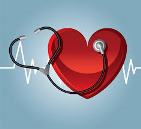4 Care Management Technology Trends to Watch
Our love affair with consumer electronics shows no signs of dimming. Every industry, including health care, is experimenting with how to use technology to interact with consumers in meaningful ways. Mobile devices are creating new opportunities for health care, particularly in the area of care management. Early adopters are testing ways to engage patients through their devices, opening technology-enabled lines of communication that were not possible in the past. Here are a few examples of trends we’ve been following:
- Digital Checkups
An academic medical center in Oregon piloted digital checkups via text messaging to help patients manage hypertension. Patient engagement was high – 70 percent of patients that were invited to participate completed a digital checkup. Forty-five percent of the digital checkups identified an action patients needed to take. Thirty percent required care management interventions, such as monitoring, dietary adjustments, or medication changes. Based on the positive results, the medical center plans to expand the program to other diagnoses.
- Monitoring Via Wearables
A health system in Louisiana is conducting a hypertension pilot using Apple Watches and wireless blood pressure cuffs to monitor participating patients’ blood pressure. Based on data gathered in frequent digital check-ins, care managers adjust medications, or make recommendations regarding diet and exercise.
- Skype at the School Nurse
A children’s hospital in Texas is piloting remote care monitoring to help pediatric transplant patients stay in school, and help their parents stay at work through virtual visits. Patients “visit” their providers from the school nurse’s office via video conferencing, using inexpensive Samsung tablets. Remote care monitoring is also helping Medicare Advantage members connect with care managers from home.
- Smartphone Symptom Checkers
Two ER doctors in Colorado created iTriage, a mobile app to help patients understand and evaluate their symptoms to help them decide if they should stay at home, call their family doctor or head to the ER. iTriage has evolved into a comprehensive source of mobile health information. Patients in accountable care organizations use the app to stay connected with network providers and access their health information on the go. The number of new health care applications for consumer devices make it easy for patients to reach in their pockets or look at their wrists to check their vitals, videoconference with a doctor and discuss test results. The connection is bidirectional, arming patients with tools to manage their health, and care coordinators with a steady stream of real-time information to help keep symptoms in check.
Category: Uncategorized

